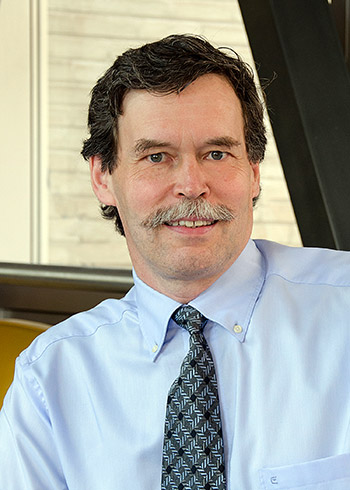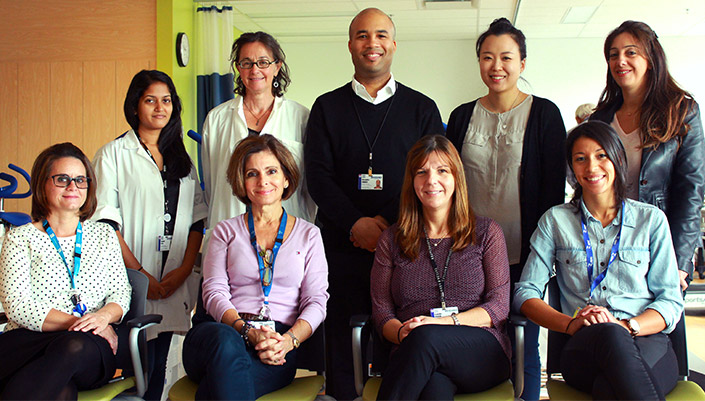MUHC COPD clinic helps patients breathe a little easier
Chronic Obstructive Pulmonary Disease (COPD) literally takes a patient’s breath away. Simple activities such as talking, walking or getting dressed can feel like major challenges. As the fourth leading cause of death in Canada, this disease encompasses both chronic bronchitis and emphysema, which triggers increased mucous, cough and blocked airways. These patients, who may also feel anxious, isolated or depressed, need the help of a team of professionals to learn how to cope with their disease.
COPD and cigarette smoking
Cigarette smoking is the most important cause of COPD (90 per cent of cases). Chances of developing the disease are greater the longer people smoke. Quitting smoking is the most effective way to slow down the progression of COPD.
See : You might have COPD if...
This is where the COPD Clinic and Pulmonary Rehabilitation Program of the Montreal Chest Institute of the McGill University Health Centre (MCI-MUHC) is making a huge difference in the lives of these patients.
According to Respirologist and the clinic Director Dr. Jean Bourbeau, lung damage is already developed when COPD symptoms appear, so the condition is usually diagnosed late. “By this time, the patient is already suffering from breathlessness and losing autonomy. More efforts are needed to create awareness of COPD and improve diagnosis as well as optimize treatment therapies.”
An integrated approach to care
The MUHC program led by Dr. Bourbeau is a centre of research and clinical expertise in COPD in Canada and abroad. Through research, they have shown that the most effective way to reduce hospital admissions and emergency visits is to use an integrated approach tof care that involves case by case management and self-management of the patient. Their strength lies in the fact that research is quickly translated into practice. Clinically, patients benefit from the skills of an interdisciplinary team, a Pulmonary Rehabilitation Program and the educational website Living well with COPD.
“We teach patients how to adjust their behaviour to manage their own illness,” explains Rita Abi-Maroun, nurse clinician at the COPD Clinic, which is located at the Glen site of the MUHC. “Since cigarette smoking is the most important cause of COPD, we tell patients that quitting smoking is the most effective way to slow down the disease. Taking medication and joining the Pulmonary Rehabilitation program also help.”
Besides respirologists and nurses, a large team of healthcare professionals in physiotherapy, respiratory therapy, occupational therapy, nutrition and social work support patients on their journey with COPD. When necessary, patients get referrals to other services within the MUHC or in the community at large.
“We work in partnership with patients and families, helping them to be autonomous, to remain as healthy as possible and to improve their quality of life,” says Abi-Maroun. “Being a member of the COPD clinic is a source of great pride for all of us.”


From left to right, top row: Chandni Patel, respiratory therapist; Josée Fortin, social worker; Alexandre Joubert, nurse clinician; Jini Joo, occupational therapist; and Rita Abi-Maroun, nurse clinician.
From left to right, bottom row: Josée Morin, student in the Social Work program; Anne Hatzoglou, physiotherapist; Isabelle Drouin, nurse clinician; and Courtney Wilkinson Maitland, research assistant.